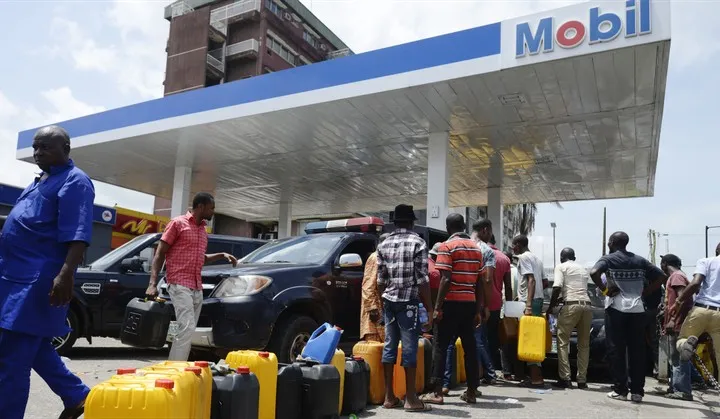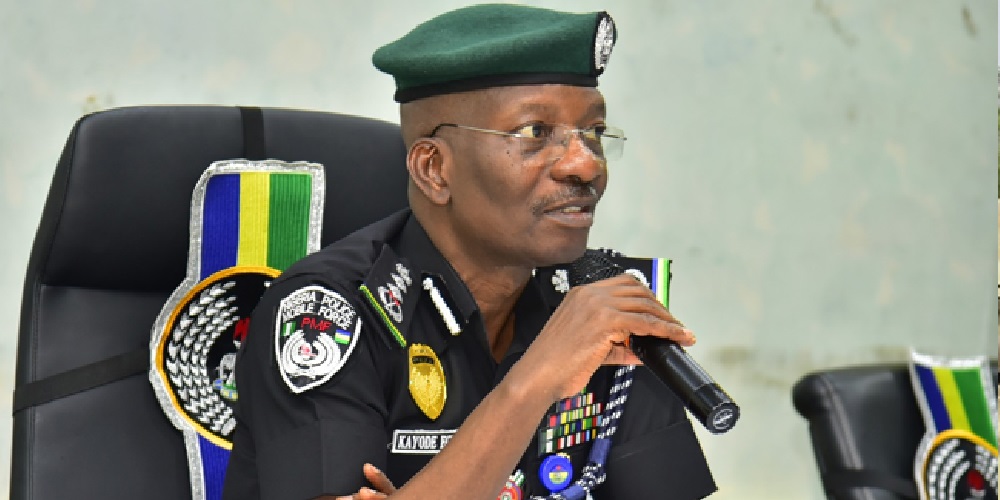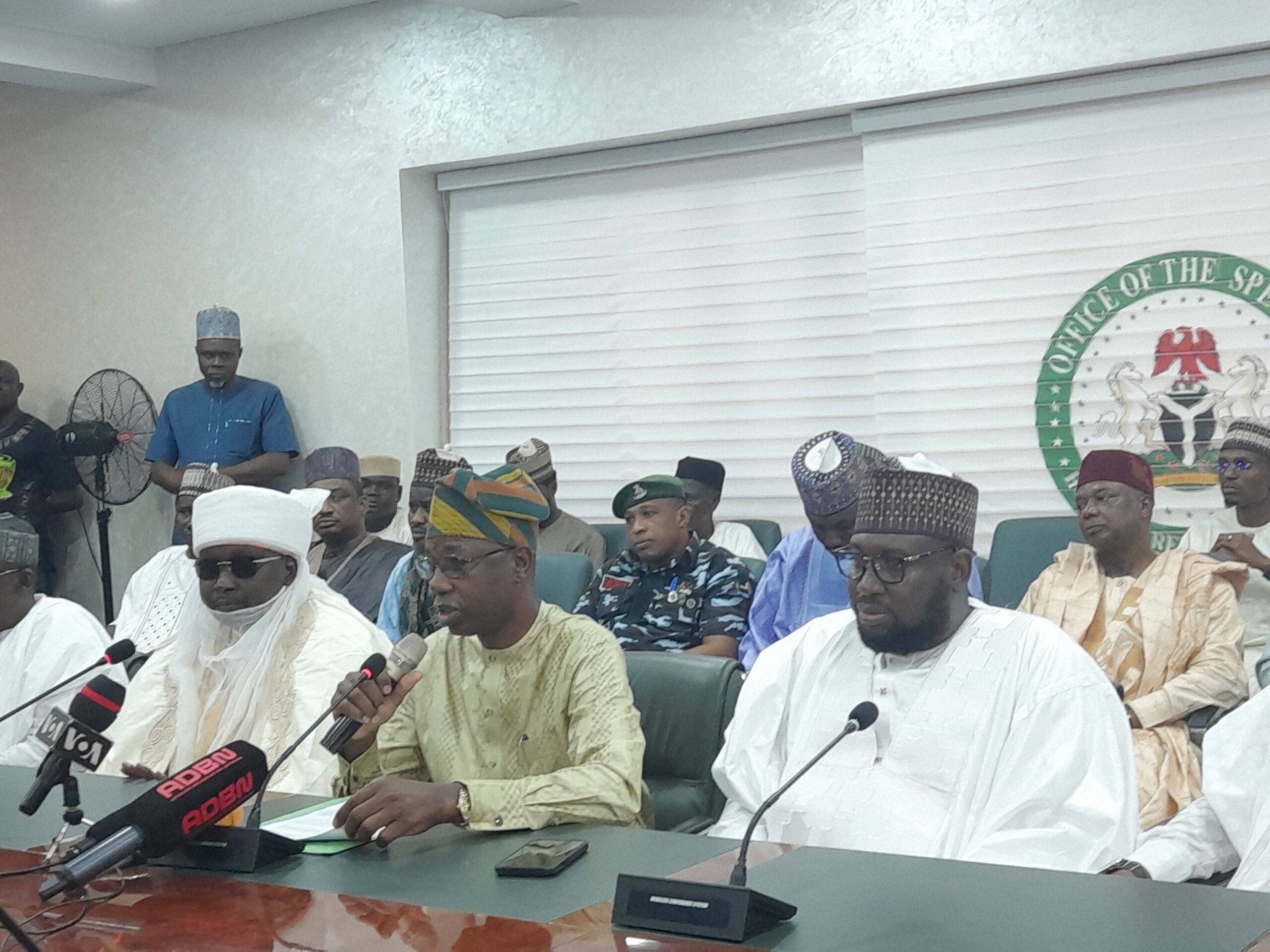News
Finally, petrol hits N1000/ltr, queues resurface despite NARTO’s suspended strike

Black market racketeers are currently taking advantage of the few day’s strike actions by tanker drivers, as the price of Premium Motor Spirit popularly known as petrol skyrocketed, hitting N1000 per litre in some parts of Lagos States.
Channels Television’s patrol team on Wednesday; observed that most filling stations in Lagos State, Ogun State and its environs, especially those belonging to the Independent Petroleum Marketers Association of Nigeria were under lock and key, while long queues were beginning to build up at stations belonging to the Nigerian National Petroleum Company Limited and the Major Energy Marketers Association of Nigeria.
While prices have climbed to N1000 per litre at the black market, MEMAN stations such as Eterna, NorthWest, TotalEnergies, Mobil, Capital Oil, Enyo, Conoil, ForteOil, MRS and others varied prices ranging between N599-N615 per litre.
MEMAN stations saw more vehicles throng their premises as consumers go in search of stations with the cheapest prices.
Most IPMAN stations at the moment are under lock and key due to a low supply of products, while those with products sell for nothing less than N650 per litre.
Most IPMAN filling stations around the Ikotun to Jakande Gate axis did not have products as of Wednesday morning, leaving motorists and private car owners at the mercy of either joining long queues at NNPCL or MEMAN stations.
Chairman Satellite Depot, IPMAN Lagos State, told Channels Television that NNPCL no longer supplies its members with products.
“NNPCL no longer give us products despite that the pipeline in our area has been repaired. We don’t know why they stopped using the pipeline to supply us with products. Maybe they fear vandalism. We now rely on private depots who sell to us at an ex-depot price of between N620/N622 per litre. By the time we take the products to our stations, the landing cost will be around N630 or more depending on the distance from the depot to our stations.
“Some people are selling around N650. It would have been cheaper if we bought directly from NNPCL at around N555 per litre,” he said.
The development comes following strike actions over operational challenges being faced by members of the National Association of Road Transport Owners and the Petroleum Tanker Drivers.
The drivers who commenced the strike on Monday, however, called it off on Tuesday after a meeting with the Minister of State Petroleum Resources (Oil), Heineken Lokpobiri, oil marketers and the Nigerian Midstream and Downstream Petroleum Regulatory Authority, (NMDPRA).
NARTO National President of NARTO, Othman Yusuf, directed members to immediately resume petroleum loading activities after a meeting held in Abuja.
News
Finally, IGP approves hunger protests across Nigeria

The Nigerian police has finally approved the planned nationwide protests and outlined conditions for participants.
The Inspector General of Police, Kayode Egbetokun, revealed this on Friday while addressing journalists in Abuja.
He urged all groups planning to participate in the proposed nationwide protest to submit their details to the Commissioners of Police in their respective states.
The police boss said this was to ensure the protest was peaceful.
Egbetokun said, “We acknowledge the constitutional right of Nigerian citizens to peaceful assembly and protest.
“However, in the interest of public safety and order, we urge all groups planning to protest to provide necessary details to the Commissioner of Police in the state where the protest is intended to take place.
“To facilitate a successful and incident-free protest, they should please provide the following information: state the proposed protest routes and assembly points; expected duration of the protest; and names and contact details of protest leaders and organisers.”
The police boss said the information expected from the organisers also include measures to prevent hijacking by criminal elements, as well as key identifiers for possible isolation of potential troublemakers.
By providing the information, he said, the police will be able to deploy adequate personnel and resources to ensure public safety.
He said the police needed to know the specific routes and areas for the protest to avoid conflicts with other events or activities.
Mr Egbetokun said the police will “establish clear communication channels with protest leaders to address any concerns or issues that may arise; minimise the risk of violence, property damage, or other criminal activity.
“We encourage all protesters to cooperate with the police, obey the law, and adhere to global best practices for peaceful assembly to guarantee a safe and successful exercise of their rights.
News
Reps North-West Caucus Beg Youths, Citizens In The Region Not To Join Planned Protest

News
Reps Applaud FCT Minister, Wike On AICL Improved Revenue, Infrastructure

-

 News23 hours ago
News23 hours agoIwuanyanwu was a Heavyweight in all ramifications-Abaribe
-

 News22 hours ago
News22 hours agoTinubu, Southern Govs Mourn Iwuanyanwu
-

 News22 hours ago
News22 hours agoSokoto Governor, Aliyu’s Wife Holds Lavish Birthday As Guests Spray Dollar Notes On Her Amid Hunger, Hardship
-

 News22 hours ago
News22 hours agoProtest: President Tinubu In Closed-door Meeting With Traditional Rulers (Video)
-

 News23 hours ago
News23 hours agoTinubu’s Presidency Is Failing Nigerians – Afenifere
-

 News18 hours ago
News18 hours agoNationwide protest: ‘Airport Is Filled Up, Govs, Senators, Reps, Ministers Traveling Abroad’ — Fayose
-

 News23 hours ago
News23 hours agoIGP Orders DPOs, Their Men To Storm Vulcanizer Shops Ahead Of Planned Nationwide Protest
-

 News23 hours ago
News23 hours agoI Participated In Peaceful Protests For Democracy – Tinubu







